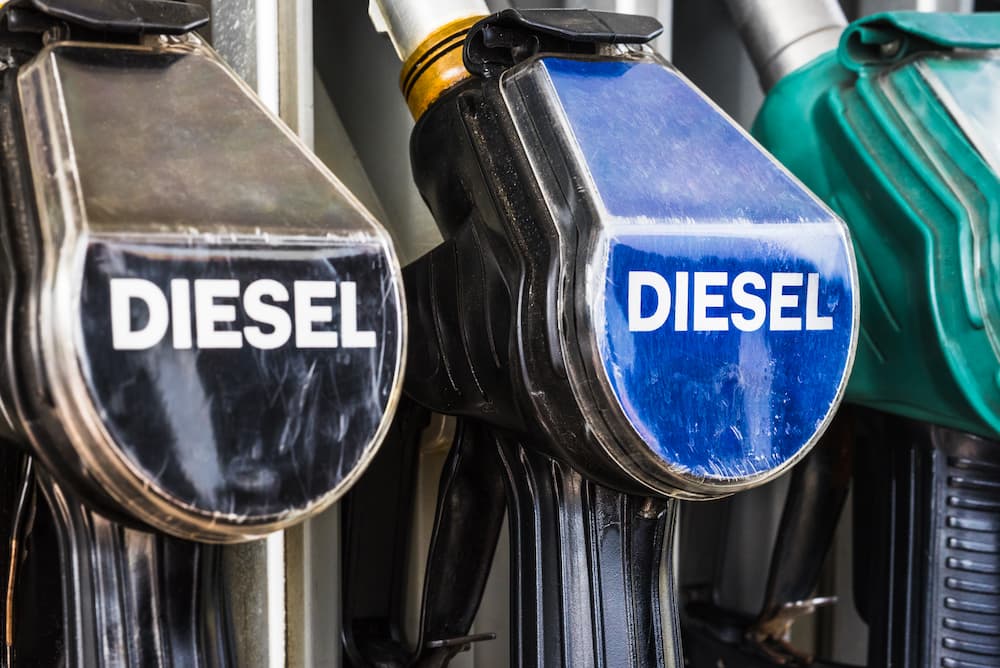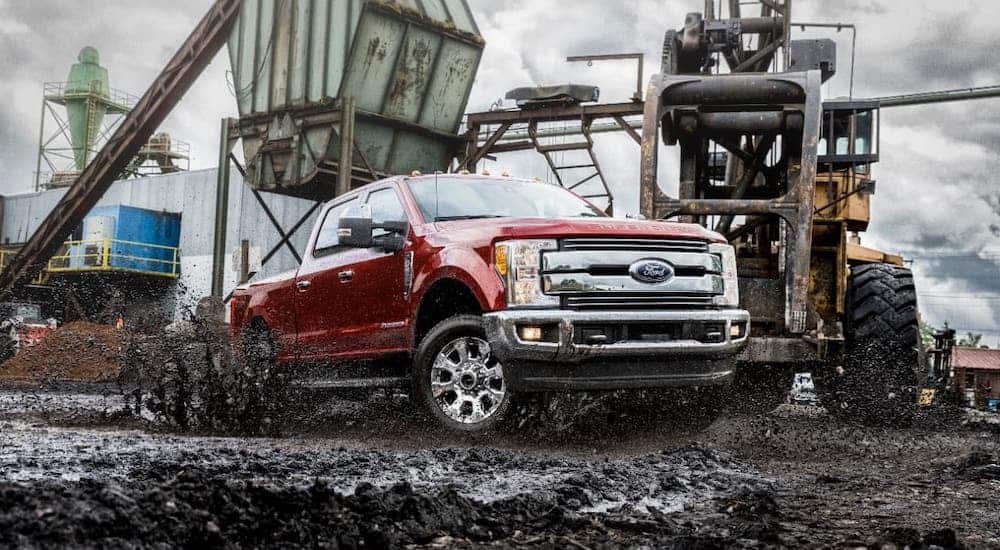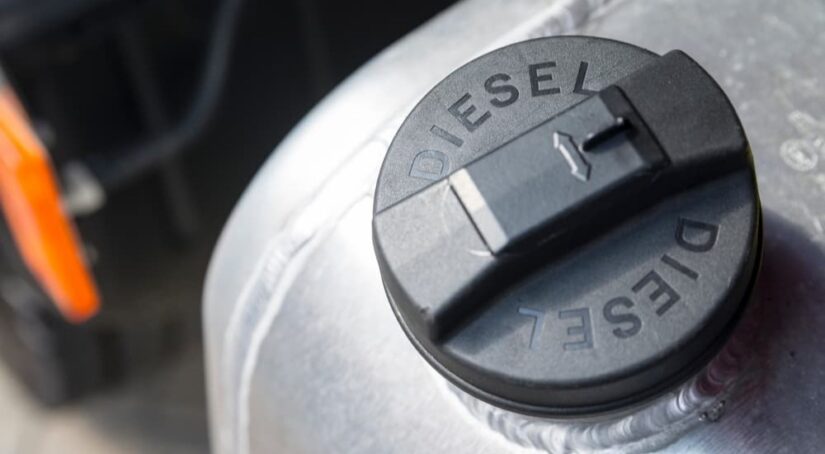Diesel has long suffered from a bad reputation. When most people think of diesel, they tend to picture a dark exhaust cloud and a loud, annoying engine, but diesel technology has come a long way over the decades, and vehicles that use it now run cleaner and quieter than those from generations past.
Diesel has managed to stick around long enough to outlive its bad rap thanks to a few unique advantages it has over gasoline. While it’s not as hard to live with as it once was, it’s still a different animal from regular gas, and you should know what you’re dealing with before you commit to a vehicle with a diesel engine. So read on to find out more about how diesel works, its pros and cons, and what you need to know as a first-time diesel vehicle owner.
Diesel vs Gasoline 101
Like gasoline, diesel is a fossil fuel that comes from petroleum, but diesel is less refined than gasoline, and its chemical characteristics are different. Instead of an ignition system, diesel engines tend to use compression, compressing the fuel to the point where it ignites spontaneously instead of using a spark to ignite the fuel. Because diesel engines and gasoline engines work in fundamentally different ways, it’s important not to get the two fuels mixed up. Putting diesel into a gas engine or gasoline into a diesel engine can cause serious damage.
Torque
One big advantage of diesel is that it tends to provide higher torque figures. Torque is a force that helps determine a lot of things about a vehicle, like how fast it can accelerate, but the main reason why diesel is so popular among drivers of trucks and big SUVs, in particular, is that torque has a big effect on towing and hauling capacities. For example, take a look at the 2023 Ram 3500 heavy-duty truck. It boasts a maximum towing capacity of 37,090 lbs, but this figure is only possible with the high-output diesel engine, which can deliver up to 1,075 lb-ft of maximum torque and 420 horsepower. The gas-powered V8 option delivers nearly as much horsepower at 410 hp but produces less than half the maximum torque, at only 429 lb-ft, and thus has a much smaller max towing capacity, at 18,210 lbs.

Fuel Economy
With diesel’s reputation as a less green option, you might be surprised to learn that it’s significantly more fuel efficient than gasoline. Diesel fuel naturally contains more energy per gallon, so you can go farther on a tank of diesel than you can on a tank of gas. Take a look at vehicles that offer both a gas and a diesel option, and you’ll usually find that you get much better mileage on the diesel. For example, the Chevy Silverado 1500 with 4WD has a combined fuel economy rating of 19 MPG with a 4-cylinder gas engine, only 17 MPG with the gas-powered V8, but a rating of 24 MPG combined with the diesel engine, which gets up to 27 MPG when driving on the highway, all according to figures put out by the EPA.
Price
When it comes to determining whether gas or diesel is more affordable, it gets a little complicated. When it comes to the sticker price, diesel engines are almost always more expensive than their gas-powered counterparts, but long-term costs are less clear-cut. As mentioned above, diesel is more fuel efficient than gas. So if diesel and gasoline have the same price per gallon, then the diesel is actually a better deal, but the prices of fuel are unpredictable and constantly changing. On the service side of things, diesel engines, on the whole, tend to be more reliable and long-lasting, not needing as many repairs. But when they do need repairs, you might find that your bill is higher than it would have been on a gas engine.
Winter Care
Diesel has a higher freezing temperature than gasoline, so if you live in a place that gets cold winters, you need to take that into account when considering a diesel vehicle. Additives to diesel fuel can prevent it from gelling, so many gas stations sell winter blends during the cold month. Make sure that you’ve switched over to a winter blend before the first frost, and it helps to use a synthetic motor oil too. Once winter has arrived, keep the tank full whenever possible since a half-empty tank is more likely to freeze over. If you have a garage, park your diesel vehicle inside to keep it warmer. If not, then try to park next to a wall, which is going to be warmer than out in the open air. For extra measure, you can get a block heater, oil warmer, and battery warmer to make sure that all of your fluids are ready to flow before you start the ignition.
Biodiesel
Diesel may be relatively fuel-efficient, but it’s still a fossil fuel. If you’re looking to reduce your environmental impact, then you may be interested in using biodiesel. Instead of petroleum, biodiesel is made from things like soybean oil, spent cooking oils, algae, canola, or animal fat. However, generally, you won’t find pure biodiesel at the gas station. Biodiesel is almost always mixed in with petroleum diesel. In fact, even diesel that isn’t labeled as “biodiesel” often contains about 5% biodiesel. What you’re really looking at when you get fuel that’s labeled as “biodiesel” is a higher percentage of diesel made from non-petroleum sources. For instance, B20 is a blend that contains 80% petroleum diesel and 20% biodiesel.
In addition to being made from more renewable resources (and ones that can be grown easily in the US instead of imported from overseas), biodiesel can also reduce your tailpipe emissions. Technically, any diesel engine can be run using biodiesel because its properties are designed to work with the same combustion systems. However, some automakers don’t recommend higher-level blends of biodiesel, and if that’s the case, then it might void your warranty. If you’re interested in using biodiesel, then be sure to keep an eye out for this while shopping.

Which Vehicles Have Diesel Options?
Theoretically, any vehicle could work with a diesel engine under the hood, but in practice, you aren’t likely to find a sedan that runs on diesel fuel in the US. Since diesel provides so much torque, it’s best suited for large workhorses that want to boast high towing and hauling figures. Because of this, trucks are the most likely vehicles to offer a diesel powertrain as an option. Some SUVs also have a diesel option, especially ones that are built on the same frame as a pickup truck, like the Chevy Tahoe and Suburban, which are based on the same platform as the Silverado 1500. Cargo vans are also sometimes offered with diesel engines.
So, Should I Get a Diesel or a Gas Engine?
If you do a lot of towing and hauling, especially over long distances on the highway, then a diesel engine is definitely worth considering. It may cost a bit more upfront, but you’ll get that value back both in terms of fuel economy and torque. Off-roaders can also make good use of diesel’s strengths when crawling over boulders or quickly accelerating through open desert.
On the other hand, if you use your truck or SUV for lighter loads, and especially if you’re mainly driving on city streets, then you’re probably better off sticking to gasoline. If fuel efficiency is a priority for you, then you’re better off looking into hybrid pickup models, which are becoming increasingly common. If you aren’t really going to use those massive towing and hauling capacities, then there’s not much sense in paying extra for them. At the end of the day, both diesel and gasoline have their strengths and their weaknesses, so the answer to “Which one is best?” is going to be different from driver to driver. Hopefully, this guide has helped to point you in the right direction.



